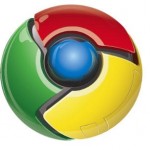 With the recent announcement of Google’s Chrome OS, I think the dreams of many of us are beginning to show signs of reality. Those dreams have to do with computers, and how they work.
With the recent announcement of Google’s Chrome OS, I think the dreams of many of us are beginning to show signs of reality. Those dreams have to do with computers, and how they work.
Right now, we’re in sort of a strange limbo when it comes to computers. Many many years ago, computers were not like they are today (duh, you say.) The most common computers were terminals, and they were basically screens, keyboards, and a bit of electronics that connected you to a machine somewhere deep in the bowels of your company or university. I never really had to use one of those. The benefit of these machines was that they were cheap. You bought one computer, and a bunch of dumb terminals.
Sometime in the 70’s, hobbyists began to build computers at home. Industry saw this, and started making computers too. Home computers… really the kind you’re reading this on right now. This new kind of computer was a computer that had all it’s processing power under the hood. You did all of your work and saved it locally (to a floppy disk or a hard disk), and your computer never really talked to another computer.
That lasted for several years, and then the Internet really began to be popular with people. The web showed up and provided information in easily accessible ways. Today, because of browser advances and some really smart people, our computers live in a sort of limbo. We store data locally, but a lot (if not all) of our computer’s purpose is to talk to other computers over the web. It’s a neat kind of marriage between the terminal and the desktop computer. We listen to music, watch movies, share videos, edit documents, get books, buy stuff, sell stuff… the list goes on. We do a lot on our computers, but we do even more with the internet and the web.
More recently, we’ve seen a neat little kind of computer emerge at a very low price point: The Netbook. Netbooks are little laptops that don’t have a lot of muscle behind them. They’re designed for internet access, where they don’t need power… just a browser. They’re great little computers. Great enough that I even have one.
Google has taken this idea to the next level. They’re focusing some of their energy on making a new operating system. It will be primarily for netbooks initially, but I suspect they intend to expand out. The OS will be browser based, and is designed to be internet focused. Most of your interaction will be with the net. There are some expectations that we’ll all start storing our data online, and we’ll be connected all the time. Imagine the possibility of having all of your music, movies, documents, etc stored securely online, and being able to access them without a huge hard drive. Now couple that with doing all of your work online. Listening to music, watching movies, writing email, writing papers, etc. These are things we already do. To me it sounds pretty awesome. In some cases, I already do it by having a connection to my computer at home that I can open up when I need to access it.
There is one problem, and I think it’s going to hit us pretty hard. Telecom companies have gotten the hang of this internet thing. There was a time of prospering early on, when ISPs didn’t really follow what you were doing, and nobody really cared (unless you were doing something very dangerous.) But when data started to flow fast and hard, it made people sit up and take notice. P2P, and Video sharing created a lot of data going back and forth, and the problem has expanded as these technologies and others have grown and spread. Telecom companies realized that the amount of data moving was probably costing them more money than they wanted to spend. They’ve wanted to engage in tiering systems, and charge both ends of the connection, that is, when you access Google, they want to charge you and Google for the data you’re downloading. The trouble is, both you and Google already pay for your connection, but Google doesn’t necessarily pay your ISP when they transfer something. Your Telco wants them to.
The problem we face then is, what happens when the ISPs and the Telcos are between us and our data? One concern I face right now is my situation with Comcast, who is my ISP. Comcast limits me to 250GB of transfer a month. Generally speaking, this is way more than I think I could ever hope to use. The idea is that the only way I could use up that much bandwidth is if I’m transfering tons of data (read movies and music), and the only way I could hope to transfer that much data is if I’m pirating it, because what fool would transfer 250GB legitimately? As I don’t keep most of my data online, it’s not a problem, but if I did, it might become one. If you listened, and watched all of your media, and it all had to stream/download from a server, you might find yourself bumping up against that edge. Though compression is getting better, content is also getting heavier. If you pass that point, you might get a slap on the wrist, or you might get your service terminated.
I think this is really just going to an extension of the Net Neutrality issue. I look forward to seeing how it plays out, but I hope it doesn’t end up with the cards all being help by Time Warner and AT&T.
Oh, and the Google Chrome Logo looks like it’s going to split and turn into an Autobot.

Everything is a transformer to you.
My biggest concern is if all your data is online and your service is cut off for whatever reason. (Moving, overdue bill, etc.) You don’t have your movies or music or anything…what are we going to do then? Read a book? 😉
i think i will read novels as i do now cuz its 2.00 kb